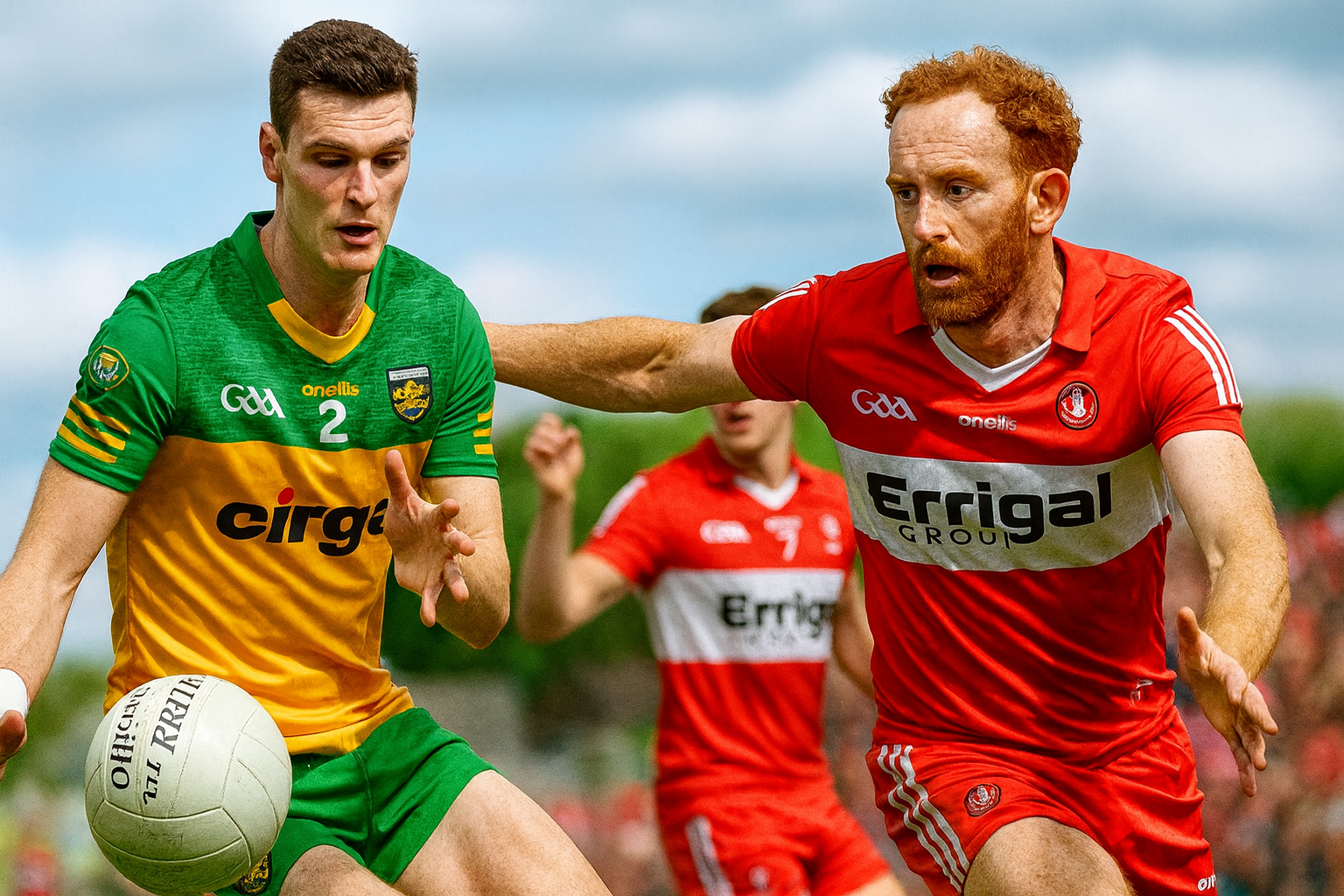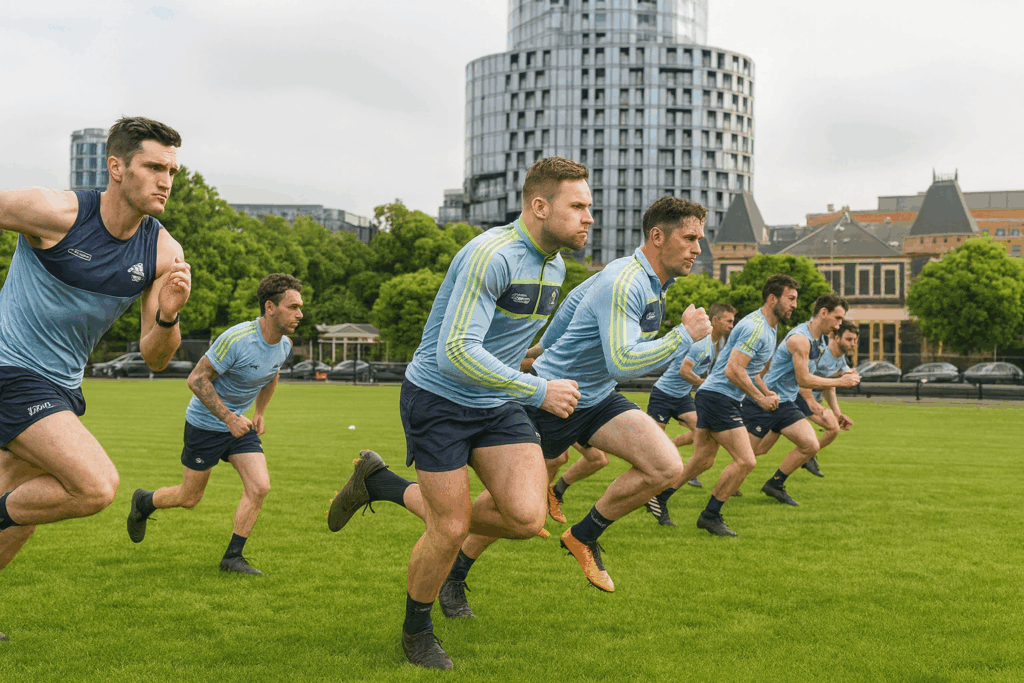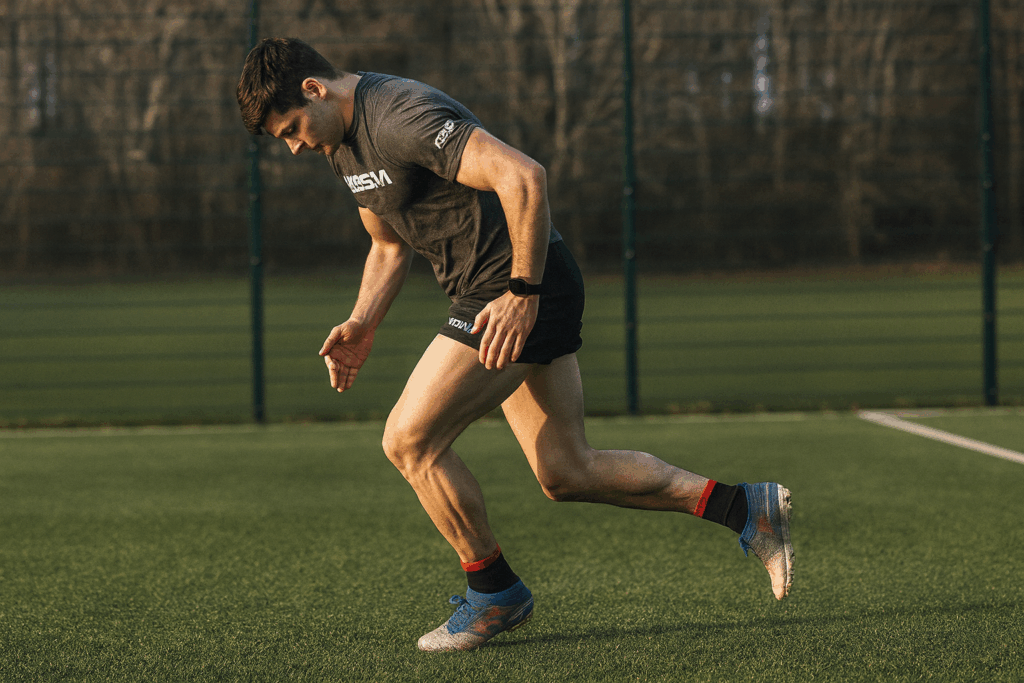Introduction
Every GAA player has imagined pulling on their county jersey at some point—the pride, the intensity, and the chance to represent your home on the biggest stage. But going from club to county in GAA takes more than just natural talent.
If you’re reading this, you’re already motivated to improve. You’ve probably wondered, “What separates county players from the rest of us?” It’s not just skill—it’s commitment, discipline, and an unrelenting focus on the finer details of your game.
This guide is your roadmap. Whether you’re pushing for a trial or simply want to be the best player in your club, I’ll walk you through the key areas to focus on and how to get there.
1. Assess Where You Are Now
Before you can take that next step, you need to know exactly where you stand.
Self-Evaluation
Take a hard, honest look at your game. What are your strengths? Are you a reliable scorer, a physical defender, or a tireless runner? More importantly, what are your weaknesses? Be specific—do you struggle with fitness in the last 10 minutes of a match? Does your weak hand let you down under pressure?
Fitness Testing
You don’t have to guess. Use objective fitness tests to create a baseline. Try:
- A 40m sprint test to measure your explosive speed.
- A Yo-Yo Intermittent Recovery Test for endurance.
- A broad jump or vertical jump to assess your power.
Knowing these numbers gives you a clear starting point. From here, you can build a targeted plan.
Watch Your Matches
This is where the magic happens. Sit down with a notebook and watch footage of your games. Pay attention to:
- Your positioning off the ball.
- How quickly you react to turnovers.
- Decision-making under pressure.
If you don’t have match footage, ask a teammate or coach to observe you closely in the next game. Sometimes, an outside perspective will highlight things you never noticed.
2. Train Like a County Player
The physical demands of county-level GAA are immense. You’ll need to push your body harder than ever—but smartly.
Increase Training Intensity
It’s not enough to simply “work hard.” County players train with purpose.
- Incorporate high-intensity interval training (HIIT) to mimic match demands.
- Use small-sided games in training to improve your decision-making under pressure while pushing your fitness.
Every session should leave you feeling like you’ve edged closer to game-day intensity.
Strength & Conditioning
Strength isn’t just for gym junkies—it’s a necessity for modern GAA.
- Focus on explosive lifts like squats, deadlifts, and power cleans.
- Incorporate plyometrics such as box jumps and bounds to enhance your speed and agility.
- Don’t neglect injury prevention: exercises like Nordic hamstring curls and side planks will keep you robust through a long season.
If you’re unsure where to start, consider consulting with a coach or following a structured plan to ensure you’re maximising your sessions.
Prioritise Recovery
Here’s where many players fall short: recovery. County players treat recovery as seriously as training.
- Make foam rolling and mobility work part of your routine.
- Sleep 7–9 hours every night—it’s during sleep that your muscles repair and grow.
- Don’t underestimate the power of hydration. Dehydration affects performance long before you feel thirsty.
3. Sharpen Your Skills
At county level, your skills need to be flawless, even under intense pressure.
Perfect the Basics
You might think your passing, shooting, and handling are solid, but can you execute them perfectly when under pressure from a hard-tackling opponent? County selectors won’t tolerate sloppy skills, so make time for repetition:
- Practise hand-passing on the run.
- Work on your weak-hand soloing until it feels natural.
- Shoot under fatigue—because that’s when it matters most.
Position-Specific Skills
No two positions demand the same skill set.
- Forwards: Practice finishing from every angle and distance. Develop a sixth sense for reading defenders’ movements.
- Midfielders: Focus on high catches and quick transitions to attack.
- Defenders: Hone your tackling and learn to anticipate passes to intercept play.
Drills Under Pressure
Set up scenarios that mimic game-day intensity. Add time limits, defensive pressure, or sudden decision-making challenges to your drills. This is how you make training realistic—and it will show in your games.
4. Build Game Intelligence
Physical ability gets you noticed, but game intelligence gets you picked.
Study the Game
Spend time watching county matches—not just for entertainment, but to analyse:
- How players position themselves during transitions.
- The timing of their runs.
- Patterns of play for both attack and defence.
Train Your Decision-Making
Play small-sided games in training where you have less time and space to react. This forces you to think faster, improving your decision-making in matches.
Learn from the Best
If you play corner-back, study the best corner-backs. If you’re a midfielder, watch how top county GAA players dominate aerial duels and control the tempo. Emulate what works and adapt it to your own game.
5. Cultivate a Winning Mindset
The mental side of the game is just as important as the physical.
Build Confidence Through Preparation
Confidence isn’t something you’re born with—it’s earned through preparation. When you know you’ve trained harder, studied smarter, and worked on every detail, it gives you a mental edge on the pitch.
Visualise Success
Spend a few minutes before training or matches, visualising yourself succeeding. Imagine scoring the winning point or making a crucial block. This mental rehearsal can improve focus and reduce anxiety.
Handle Setbacks with Resilience
Every player faces setbacks, whether it’s injury, a bad game, or missing out on a squad. What matters is how you respond. Use setbacks as fuel to push harder and prove yourself.
6. Fuel Your Performance with Nutrition
You can’t perform at your best without the right fuel.
- Match-Day Nutrition: Focus on easily digestible carbs like pasta, rice, or potatoes.
- Recovery Nutrition: Combine protein and carbs post-training or match (e.g., a chicken wrap with a banana).
- Hydration: Monitor your urine colour—pale yellow is ideal.
County GAA players are meticulous about what they put into their bodies. Start small, but stay consistent.
7. Make an Impression on County Selectors
This is where all your hard work pays off.
- Consistency Is Key: Put in strong performances every week for your club. Selectors want players they can rely on.
- Leadership: You don’t have to wear the captain’s armband to lead. Communicate, encourage teammates, and lead by example in effort and discipline.
- Versatility: Be adaptable. If you’re asked to play a different position, embrace it as a chance to show your range.
Conclusion
The journey from club to county is tough, but it’s achievable with the right mindset and preparation. Remember, it’s not about making huge leaps overnight—it’s about consistent progress every single day.





